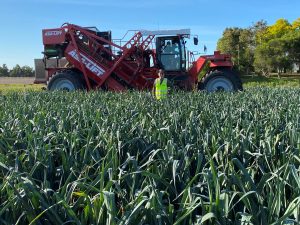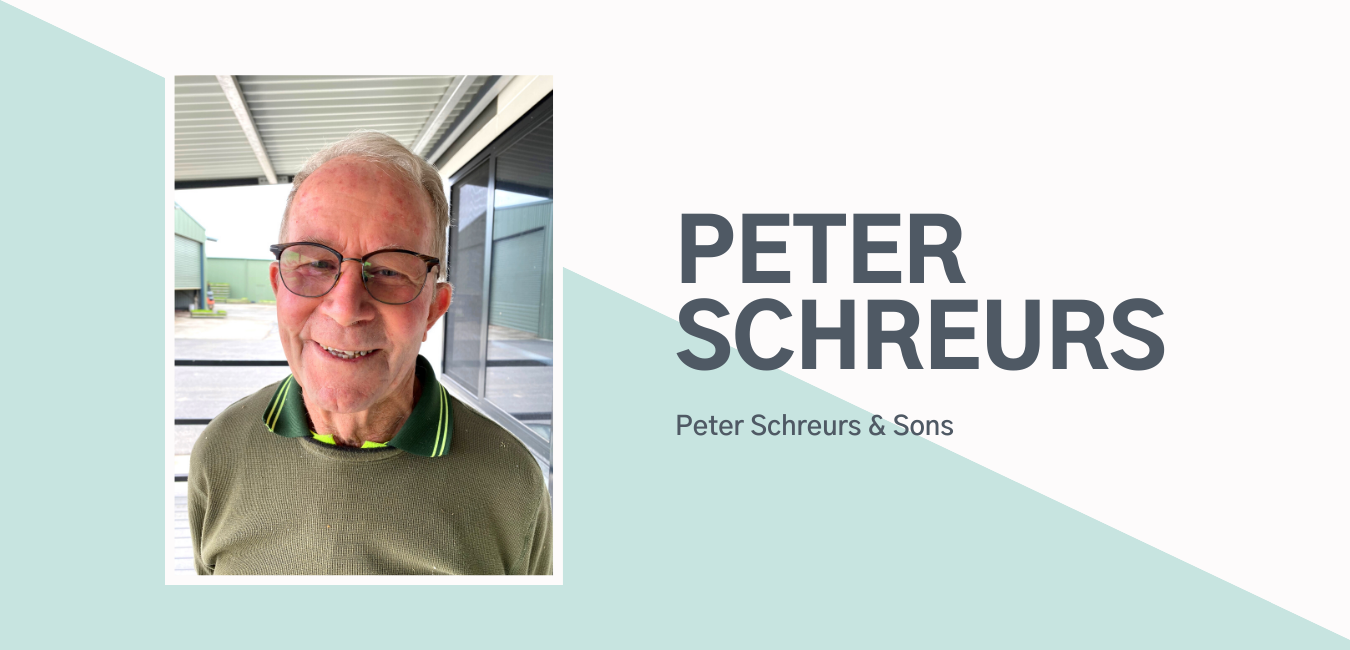Reflecting on past achievements: Peter Schreurs
The Syngenta Grower of the Year award recognises outstanding achievement across all aspects of horticultural production, including growing, environmental management, staff management and quality of produce. It also acknowledges grower commitment to innovation and advancing the Australian horticulture industry. In this edition, past winners Peter Schreurs, Jim Trandos, Scott Samwell and Jason Shields chat with Michelle De’Lisle about the award and its significance. The Syngenta Grower of the Year award will feature again in 2021 at the National Awards for Excellence, which will be held at Hort Connections in June.
It was the late 1990s when Victorian vegetable growers Peter Schreurs and his sons Mark, Darren and Paul, realised they needed to change their farming practices to ensure future sustainability for their business, aptly named Peter Schreurs & Sons.
Peter, Mark, Darren and Paul spent some time investigating innovative ways to grow their crops and subsequently manage them, and it was during this search that they discovered Integrated Pest Management (IPM). This was a game-changer for the business, and Peter Schreurs was duly recognised for his innovative on-farm practices when he received the 2008 Landini Grower of the Year award.
Peter reflects on the award and the hard work that was undertaken in the preceding years.
“Winning the Grower of the Year award in 2008 was very encouraging for my sons and me,” he says.
“As IPM had become a major change in the way we approached our pests and diseases, I attribute the award to having succeeded in using IPM on a large commercial scale for eight years. My passion is to encourage all vegetable growers to adopt IPM, and steer away from what was the conventional way in growing vegetables.”
Over the past decade, Peter Schreurs & Sons’ focus has expanded to include soil health.
“Before 2008, we had been using green cropping on our farm for many years and that was incorporated with our rotation program,” Peter says.
“Since then, we have become more focused on using compost. With compost, the results are not seen immediately. For the last 10 years, we have used compost on every part of our farm and now we see our soil being very alive, with lots of activity and good structure.”
An evolving business
Established in 1964, Peter Schreurs & Sons is continuing to successfully operate at its Devon Meadows site. Peter has stepped back from the day-to-day duties but is still involved in administration and has become the self-described “handyman around the farm.” Mark, Darren and Paul oversee the growing of leeks, baby cos, Cosberg lettuce, radicchio, baby wombok and kohlrabi, along with a team of dedicated staff.
Staff welfare is something that Peter Schreurs & Sons takes seriously.
“Many people in agriculture are struggling to have a big enough workforce to successfully run the farm,” Peter says.
“We are very conscious of the wellbeing of our staff and have adapted to mechanical harvesting of all our vegetables, except kohlrabi. Therefore, our staff are not exposed to all weather conditions and, in turn, are much more content.”
Peter is proud to have had the opportunity to provide a future for his three sons and now his grandchildren, and he continues to keep an eye out for business opportunities.
“As our grandchildren are still young, we will keep focusing on farm productivity, sustainability and better ways to produce. Our aim is to keep on improving what we do, especially our soil health, and to have the farm in a better condition than when we first started,” Peter says.


